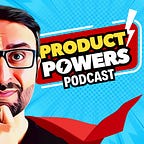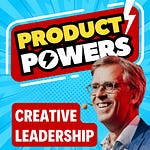In this episode, we delve into connection and its importance in our lives. We explore the concept of intentional connection and how it can lead to more positive and magical experiences in life. Hear personal stories and examples, highlighting the importance of trusting your gut feeling and being deliberate in your choices and relationships.
👉🏽 The significance of connection with ourselves in leading a fulfilling life
👉🏽 The value of genuine communication and self-awareness in building connections and elevating conversations
👉🏽 How to respect and listen to your emotions
🔥 The first 3 people to email Anna will recieve a 1 hour FREE coaching session. Just include the word ‘Superpowers’ in the subject line: anna@annaurbaniak.com
Anna Urbaniak (Organisational Transformation Coach)
With almost 15 years of experience, Anna Urbaniak is a business consultant, coach and change leader who supports ambitious organisations in improving their mindset, culture and performance.
Anna is on a mission to alter the way that we see change, empowering organisations and individuals to reframe it as an opportunity for incredible growth and lasting transformation.
Having worked with some big names across a wide range of industries, Anna has a unique approach that looks at businesses holistically. She invites them to consider things from a fresh perspective bringing new innovative ideas and a people-centric approach to the table.
Email: anna@annaurbaniak.com
Website: www.annaurbaniak.com
LinkedIn: https://www.linkedin.com/in/annaurbaniak/
⚡️ In each episode, Paddy Dhanda deep dives into a new human Superpower and gives practical advice on how you can apply it immediately.
👉 Sign-up to Newsletter: https://www.superpowers.school/subscribe
👉 YouTube: https://www.youtube.com/c/paddydhanda/
★ BUY ME KO-FI ★
If you enjoy the podcast, then you can donate a small amount here as a token of your appreciation: https://ko-fi.com/paddydhanda
Transcription:
[00:01:01] Paddy Dhanda: Dear friend. Thank you for joining me for another episode of the Superpower School podcast. I'm your host, Patty Danda, and on today's episode I have somebody who I've previously worked with. Somebody who I often pester for information and knowledge. She's one of the most lovely human beings I know and always willing to help.
She is a organizational transformational coach. She helps organizations navigate change with a human touch so they can get the best results that they can. And I'd love to welcome Anna Urbaniak to the show. Anna, have I said your surname right? Because I always think I get it wrong.
[00:01:43] Anna Urbaniak: No, you spot on. Thank you so much for having me. Very excited to be here. We planned this for so long, Paddy, and it's finally happening, which feels like something to celebrate. Thank you for having me. Oh,
[00:01:55] Paddy Dhanda: you're welcome. I was saying, just as I was recording the intro, I don't often make a mistake as I'm introducing the show.
And today I did. And I think it's the nerves. Look, the nerves are jangling because you're on the show. So that's the impact you're having on me.
[00:02:11] Anna Urbaniak: Maybe it's the fact that I was just giggling right before you started. I won't tell anyone.
[00:02:16] Paddy Dhanda: So Anna, what superpower would you like to bring to this particular episode?
[00:02:22] Anna Urbaniak: The superpower I would like to bring to this episode is a superpower of connection, in particularly human connection. And that is three things in my mind, is the connection to ourselves, is our ability to connect with others, regardless of their role, their status, where they're from. And our ability, especially at work, to actually connect to the purpose and the organization that we are part of.
And we spent so much time in.
[00:02:55] Paddy Dhanda: Wow. This is a coincidence because I'm doing a talk in a few weeks which is all about connection. And pretty much that structure you've just mentioned there is the structure that I've written for the talk. So the first point was about connecting with yourself and having the right mindset, building that mindset.
And then how do you bring that to connecting with others? So this is going to be a great learning experience for me because I think I'm going to be definitely slotting in some of your insights into my talk. So really excited for this conversation. But before we do that, Anna, you have a very unique surname.
So for anyone that doesn't know you, could you tell us a little bit about your background, where you've come from, and how did you get into all of this type of work?
[00:03:47] Anna Urbaniak: I am originally Polish. If I was to pronounce my name with a very Polish accent, it will be Anna Urbaniak.
So it's very different from anything people normally say, but I don't have a very strong attachment to that. So that's cool. So I am Polish. I grew up in a super small town in Poland, and it was in the times of the eighties just when the communist amended. And then I think I was one of the first generations to go to primary school post the communism.
The only part that is relevant of that is probably like a heightened sense of security because I always find myself being very courageous and adventurous and wanted to try new things, experience different things, meet new people. Like, always been fascinated by all the Abby and Bee guests.
It wasn't called Abby and Bee back then, that came to my grandmother's house. Being just like, oh my god, life can be so much more than what I see in this small town. But the family around, the small town, the protectiveness, the security of a world might happen, the uncertainty of the times.
led to my parents really holding on to me until like I was 18. And then I was like, now the world is the oyster. I'm off. But to cut the long story short, I recently posted about having big aspiration, wanting to go to the best school at the best university we had in Poland. And I got rejected.
And I say more about that in that post, but what that led to me not even being able to go for my second choice, but going for my backup plan. Long story short the backup plan ended up being a smaller university that I was able to excel at, and then that led to me Being like, you know what?
I always dreamt of being in a big city. There wasn't a bigger city that could be in that London. My first career dream was actually to be a diplomat. So after graduating my Polish university, I applied for every single Polish diplomatic mission in the world.
I sent back then letters. To about over a hundred diplomatic missions, like under seas and consulates requesting or applying for internship. And that's how I ended up in London. Cause when I got, did you get any
[00:06:00] Paddy Dhanda: replies?
[00:06:02] Anna Urbaniak: Yes, I did. Funny enough. I did. I got accepted to London and Austria. Oh, wow. Back then London was our top bilateral relations country that Poland has relationship with because of the Second World War, et cetera.
So I was like, I've got to go to London, this is the top of the top and wanting more, there's probably something to deal with there, always wanting to go higher and achieve a badge. And that's how I ended up in London. After the internship.
I ended up applying for a master's degree at the Diplomatic Academy of London. So I am your in house fully qualified diplomat. I graduated from that. And then I realized that having done those internships. Diplomatic service is very much about serving your country and very much about projecting the current agenda of your country.
So it requires a lot of patriotism. It also requires a lot of following instructions or complying with the agenda of the government in power. I was in my twenties, I still had the energy to change the world. I was like, no, I want to make things better. I want to change the world. I might come back to being diplomat when I'm in my fifties.
So that was the seed. After doing my first degree to be like, no, there is something else that is calling for me. And that was change. So since then I navigated my career choices to lead me to organizational change and transformations. And that what I have been doing for solely focusing on the change in transformation for, I think it's heading towards.
It's 15 years soon, probably about 12 years now.
[00:07:42] Paddy Dhanda: So you were about five when you started? Yeah.
Oh, well, Anna, it's phenomenal amount of knowledge that you have, because I remember when we were working in a previous organization you'd be buzzing with lots of insights. And I would say fresh perspectives because I always knew if I have a conversation with you. I'm going to learn something different.
It wasn't just the norm as everybody else was pushing. There'd be always some interesting insights from you. We talk about connection and could you Go a little bit deeper for me on the first point you mentioned about connecting with yourself. First of all, why is it important to have a superpower of connection?
And then how do we connect with ourselves?
[00:08:32] Anna Urbaniak: Great question. So maybe I start with what connection actually is. Connection is a relationship between two things that is of tangible or intangible nature. When we talk about connection, we can have connection to things. We can have connection to ideas.
We can have connection to things that might not be tangible, like the human you can touch. And the reason why we start with connection with ourselves is because at the end of the day, I truly believe that each and every one of us. I hear for a reason and I hear with the gift to share another thing I have learned on my journey and just kind of experiencing life is that there is this incredible emotional guidance system that we have like our emotions are not just something that happens to us that is unexplained.
But it's something that is really trying to guide us or protect us sometimes from things that, again, are tangible or intangible. So the reason why we start with the importance of the connection to ourselves is that only knowing ourselves, we can then understand what is our connection to something else.
Is it because we value something? Is it because we've experienced something in the past? Is it because those are the kind of things that we perceive that are necessary to be connected to? So we can only understand our connection to other things when we understand ourselves. Then understanding ourselves, and this is your probably textbook mindfulness, it starts with practicing awareness of what is happening for me.
It is much simpler than you think and much harder than you think at the same time. Because it's as simple as stopping and being like, what's going on for me? But when we are at the height end of the emotions, we don't always feel what's going on for us. That's why self awareness. It's important if we can in the moment, it's like, oh, something happened there, but you might not always be capable to unpack it there and then.
So that's where the second layer of connecting with yourselves come in, which will be self reflection. So kind of reflecting with someone or on your own, depending what resources you've got available and what works for you. What was going on there? I really responded strongly.
Why did I get so agitated, like this person maybe hasn't done anything wrong. But all of a sudden I felt like blaming them for what they said. But it wasn't them, it's what they said that perhaps triggered me in that conversation. And then I think another layer to self awareness and then self reflection is that's where this gut feeling comes in.
And being able to differentiate between Ooh, am I feeling this because something is trying to protect me? Or is it trying to teach me something? Or even the other way around, sometimes I had those moments when I would meet someone and I would just have that gut feeling like I know you from somewhere or me and you need to talk, right?
And following that gut feeling and trusting that is there for a reason is not like, okay, yeah, it's just another person just don't overdo it, right? That's another thing that we can only tap into if we start paying attention to ourselves. And then I think from this point or the space of being aware of who we are, what we value, what is going on for us emotionally, we can then arrive at the place of genuinely what is our intention for connecting with something or someone else.
Because any connection without intention can manifest in different ways in people's lives. But the moment that we connect with intention. Then things become much smoother and more magical in life, I found.
[00:12:18] Paddy Dhanda: I tell you why I'm so intrigued by Connection is in terms of just the experience of this podcast.
It's helped me in so many ways because every week, apart from yourself and a few, a handful of my guests, I don't know anybody. And most of the guests are complete strangers. I find it really fascinating turning up on a Zoom call and speaking to someone for the very first time and spending like an hour, but trying to connect with that person.
And it's really taught me a lot about just how do you do that? Sometimes we have things in common. Other times we have nothing in common. Like I had a guest who was a psychic medium. I have no idea about that particular profession, but we connected on so many other levels and there's so many human levels that we connected on, which was amazing.
And I recently had a, an American air force fighter jet pilot. Again, I can just about drive a car, and I never mind flying an aeroplane, and I'm scared of heights. So, again, that was crazy. But the other interesting thing for me was, when we're growing up... For good reason, our parents tell us don't speak to strangers, right?
Don't speak to strangers. And so especially because I was an only child, I didn't have any brothers or sisters. I think I lived a fairly quiet life and didn't really know how to connect to people because I wasn't really put in those situations. And when you start work, you're told it's good to network.
It's good to connect. It's good to engage with lots of people. So I think from what you're saying, just being. Cognizant of your own. Mindset and the way that you think about yourself is a really good first step and just understanding yourself and then start to think about how do I connect with all these other people.
But the bit was really intriguing because I've found this as well. I usually refer to as positive energy. Like I normally connect with people that have positive energy, but is it positive energy or what is that thing? Like you said, in your gut that draws you to certain people closer than others.
[00:14:26] Anna Urbaniak: It's a great mystery what that thing is. For me personally is accepting that as a mystery and yet trusting it. Depending on the discipline, you're going to look at it from, so your psychic medium would have probably said it's something to do with the auras and past lives.
And maybe the reason why we connected is because in the previous lives, we're best friends, or maybe we're siblings. So one would explain it like that, right? Sounds crazy, right? Another person might explain it by pure psychology. So you see something in that person that either is like you or like what you would like to be.
Because apparently the psychology or one of the schools of psychology says that we are attracted to people who are either like us or who we would like to be, so who we admire. We don't necessarily attract it to people who are complete opposites to us. If we don't admire or we don't see our mirror reflection in them, we don't attract it to them.
Another school of thought might give you another explanation what that gut feeling is, right? It's like more neuroscience. We'll probably talk about the subconscious mind. So it might be that protective mechanism or is something that is giving you reassurance based on the certain conditions that are in the environment, the facial expression of the person that reminds you of the mother, whatever that is.
And another school of thought, quantum physics will say it's vibrations. So I think it was very flattering what you said about that I always would have a different angle to a subject. For a very long time, I felt that I have commitment issues as a person.
I couldn't commit to a job. I still cannot fully commit to long term friendships. And it's not necessarily and I always felt bad about it, because the society teaches that you've got to commit, you've got to focus. And I always find myself and describe myself as the butterfly. I was like, I go there, I sit on that flower, I enjoy the view, I take what kind of serves me or what I can or give what I can, and then I'm off.
I go to another flower. I recently came across the term called multi potentialist.
[00:16:33] Paddy Dhanda: Oh, say that one again for me.
[00:16:35] Anna Urbaniak: Multi potentialist. Multi potentialist. Yeah, so it's like when you have multiple potentials. Wow. Okay. Interesting term. When you basically get interested in the topic and you will go like deep enough and then you will bounce back and you will go into another one and then you start connecting different disciplines.
So you become, because you see multiple potential in different disciplines that can come together and generate even greater insight. And I feel like what I'm doing right now with the answer to your question about what is that gut feeling is a little bit like that, depending the perspective you take it from, depends what you believe in.
For a religious person, it will be the God and the angels and the soul, right? For someone very logical would be just like, I just like the guy, not a biggie. Don't tell me about a gut feeling, but many CEOs make decisions from that place of they just trust they got feeling. And it says that some of the best decisions that they can from that place, but they don't dwell on it, where it comes from.
So it also depends on the level of relationship you want to build and what you believe in, et cetera. Have you ever had the moment when you felt like a miracle just happened?
It's like, how did I just meet this person? That was my dream. Or you felt like life is happening for you being just like, Oh my God, I always wanted to go to LA and they invited me to go for that conference. Have you had a moment
[00:17:53] Paddy Dhanda: like that? I just had one before this call, actually. I was speaking to some people who have invited me to a conference in New York and I've been saying for ages, I would love to take the family to New York.
So that was cool.
[00:18:04] Anna Urbaniak: If we truly connect our heart and we think about our professional and personal lives, we all had those moments that felt like miracles, like magic. Different discipline call them different things. And I think when they give us a good feelings when they work, when we've learned that we can trust them and they lead to positive places.
And I think it's our choice to trust them regardless where they come from. And I think the more we connect with that, the more we can be deliberate of our choices and our relationship with that gut feeling. In my experience, like the more you connect to it, the more it's going to be there for you.
Other people call it law of attraction. I forgot about that one. Was that just you going to New York? I'm like, that's law of attraction. Which is lovely and all of those different disciplines have something to offer some kind of depth of understanding some kind of ability to Just resonate ability to feel seen or to feel understood and they will help us in different times in our lives.
[00:19:03] Paddy Dhanda: What is that feeling for you? What is that feeling for me?
[00:19:06] Anna Urbaniak: Yeah, the gut feeling. What does that mean to
[00:19:08] Paddy Dhanda: you? I think a lot of the time I put it down to positive energy or the energy between us. Is somehow compatible, sometimes you find toxic energy and it can be where people are very negative about everything and I just like, oh, I need to move.
But when I find people that are positive, I'm naturally drawn towards them. So that could also align with the psychology perspective that you mentioned there. If we're having this conversation, I'm very down and I'm just talking like this and you're probably going to go.
I could have been doing so many other useful things right now, but I'm talking to this guy who has no energy. So being a bit upbeat, I think it really helps with that connection. Now you mentioned CEOs there. And I know you have a great story about meeting probably one of the richest men in the world he warmed to you and for someone to be able to do that to somebody in such a position, there's something special.
So could you tell us that story?
[00:20:09] Anna Urbaniak: Yes. So the particular story that you refer to, it was my first time meeting the chairman of the company and it was a boardroom and it was probably about around dozen of people in the room and I was the only female in that room, as you would have imagined, and without going into a detail, the chairman was expressing some Direction or some kind of expressing his viewpoint or a particular matter that he was trying to get the group of people around the table to joined up as a shared group of people or as a team and go the same direction.
And so what happened is there were various attempts of trying to fully understand where this gentleman is coming from. Because we all have different backgrounds, we use different language, for many of those people, maybe English is not their first language for others it is, and it sometimes makes it quite difficult to encode our intention of communication versus how it is received.
It's a whole science around that. And my diplomatic training went into play there and I was just like, I know that all of those people are saying the same thing, but just in different words. And by saying it in different words, they create miscommunication, like perception of misalignment, right?
It got the point where I got it up my own kind of courage, and I've noticed, how do people get to speak? It's my first time in the room, completely different culture. So I am trying to be also very aware of what's going on. And I think that's also one of the skills that I have really hard work on, is to be able to reach the room beyond the words, but also into like
How do things get done around here? And so what I've realized is that eye contact and a little bit of like a gesture, just gets the attention to say, okay, you have something to say. And that's when the chairman will ask you to speak. That's what I've tried. I was like, okay, that's what I need to do.
So that's what I've tried. And that's where I tried to summarize the conversation where everyone was coming from, where the chairman was coming from, and was very careful and I was making very detailed notes as everything was going on about what is the shared ground here and how can I use everyone's words in order to help to bring alignment.
I raised my hand and I tried to summarize the conversation in points, because I know that the CEOs are not the people that will just listen to a waffle. So I was trying to be prepared. I'm just like, okay, those are the points. And so I raised my hand, I was given the voice and I started speaking with like, I would very much appreciate if I could just play back what I've heard, just to make sure we are all on the same page.
And then the ask is to do X. And I try to point those things out. And the smile on the chairman's face and his eyes lit up. And he was like, yes, exactly what she said and two or three more things. Right. So the new ideas came on top of that. And it was a great point of connection from that point onwards is because not only he felt understood, right?
There was the sense of like, Oh my God, you've listened and you understood what's going on in the room, but you played it back to me and I am feeling hurt. That's what I think happened in that room that created this connection, and actually when I think about connection and we haven't spoken about two people connecting, but I think this is a great example.
I think what primarily happened here, and that's what I really apply to as many situations as I can, regardless of the ranks in the organization, is that I set the intention for my communication or for the reason of connecting. And when that intention comes from trying to help someone else, it's like, how is that I can be of service in this room?
How is that I can help? How is that I can help to achieve the common goal? Then it comes from a very different place when you actually put the other person higher than yourself, right? When trying to build connection, I think you get that a lot from like networking events, comes from the place of me to try to show off my knowledge.
Or me to try to show off my achievement, how great I am and don't get me wrong, there is a place and space for people to elevate themselves and job interviews, of course, talk about your achievements, but I think when we genuinely seek to create connection, it's about that intention that is outward facing that allows us to connect not from our heads, but more from our hearts.
When we just genuinely are trying to help and I feel that's what happened in that particular story that I shared with you some time back it was an amazing experience for me because it was probably the first time it happened at that level, but I also think that it happened because that particular person also is very self aware and was also speaking from the heart.
So it wasn't the ego speaking, it wasn't the numbers, it wasn't the managerial bluff. It was genuinely coming from the place of trying to do something good for the customer, something good for the organization.
[00:25:24] Paddy Dhanda: Oh, thank you Anna for sharing that. And I think a lot of us, me included, when we're talking to people quite senior in an organization, it can be very overwhelming and difficult to have those conversations sometimes.
And we can just end up shying away. So it's great to hear you had the courage to actually speak up and share your perspective, which sounds like it really helped you elevate the conversation even further. So that's amazing. Now, I know we are running fast out of time. I think we could probably have had an extra long episode today, and we probably would still not have enough time, but I will look to get you back on the show because I really want to explore more of your insights.
And hopefully by then, you and I will have tried out a few different things when it comes to connection. We can come back together and talk about what's worked, what hasn't. If anybody is interested in learning more, Are there any resources, any books that you would particularly recommend?
[00:26:22] Anna Urbaniak: The book that is on top of my head right now is the one I'm reading.
I'm actually listening to another audiobook and the person that is creating a lot of connection between me and what's in the book. And that book is called The Myth of Normal by Gabor Mati. So it's very much from the perspective of understanding ourselves and it actually has very similar layers to what we spoke about is about the connection with ourselves is the connection with our immediate people in our lives.
Chapter 14, which I'm on is about a connection to the workplace. But then it also talks about the connection that we have and how that connection works both ways, why the political system, the cultural system, religion, economy, social systems, et cetera. So it's quite big when it comes to connection and how everything is connected.
If there is one book I can recommend, it will be this one.
[00:27:16] Paddy Dhanda: Oh, thank you so much, Anna. I will be definitely checking that one out. So Anna, thank you so much. And by the way, how can people get in touch with you ?
[00:27:23] Anna Urbaniak: So the best place to connect with me will be LinkedIn.
You can also find me on my website, which is annaurbanek. com. And I actually have a special gift for your listeners. I think you're doing such an amazing job partly with your podcast. And I think exploring our superpowers is so important. Because I truly believe that one person that is connected to who they truly are and do their work with the meaning and the purpose they're connected to.
can make much more difference than hundreds of people doing the job mindlessly. So if you find yourself in one of those people who feel like, you know what, the connection to myself is so important to me, I would love to talk more. Maybe you're impacted by the workplace and the dynamics of the workplace.
So the first, I will offer you three, the first three people, then send me an email with the subject superpower. Get a one hour free coaching session with me. My email address is Anna at Anna Urbaniak. com. So send me an email subject superpower. And the first three people we will get to talk and we can explore more in your particular context, in your organization, whatever challenge you've got.
We talk more.
[00:28:38] Paddy Dhanda: Awesome. And I will share the email in the show notes as well just in case somebody wants to check that out for sure. So thank you so much, Anna. You've been a superstar as always. Really appreciate you taking the time today and sharing valuable insights.
[00:28:52] Anna Urbaniak: Thank you so much for having me and yeah, let us know what you got away from it.











